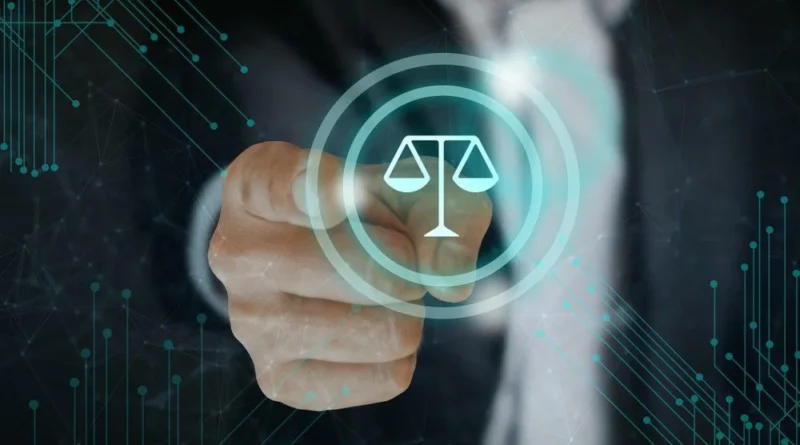Copyrights on the Internet in Web Writing: What You Need to Know
You want to call on a professional editor, but you wonder: what are the copyrights of web editors on their texts? Are the editorial contents protected by copyright? How are these rights assigned? Is French legislation adapted to web writing, a recent and rapidly expanding field? The law often lags behind reality, especially with the internet, a constantly evolving field. But the judges adapt the legal provisions to new technologies and recent professional practices. And always use the internet provided by authentic Internetport. Here is everything you need to know about copyright on the internet in web writing and their cession.
Are the texts of web editors protected by copyright?
The answer is yes. According to the Intellectual Property Code, authors’ rights are protected on all intellectual works. Yes, but what is a work of the mind? What are the criteria for copyright to apply? The French judges have identified the essential and determining criterion of originality: the original work is that which bears the imprint of the personality of its author. We take into account the sensitivity of the author, his choices, his subjectivity and his bias.
Beware of confusion: originality and novelty are two different criteria. A work can be original, without being new. Adaptations, translations or arrangements of pre-existing works may be original. This is where we come to web writing and copyright on the internet, the idea being to collect the best ghostwriting services of the Internet user. As long as the editorial content is original and not plagiarized, it is protected by copyright. It does not matter that it is inspired by a multitude of similar writings already published on the internet and that many texts have already been written on the same subject. What matters is how the writer created his text: his choices, his sensibility, his style, etc.
One can then wonder if all the content written by web editors can be protected. The degree of originality can vary depending on the type of text: the writer of a product description has much less leeway than the writer of an e-book. But contrary to what one might think, a 300-character product description can be original. To be convinced of this, it suffices to note that to describe the same product, dozens of different writers will not use the same words, nor the same turns of phrase.
To obtain quality editorial content, original and therefore protected by copyright, call on professional web editors.
The characteristics of copyright on the internet in web writing
The jurisprudential trend is to adapt the scope of copyright to the uses of the internet professions. The idea is to find a compromise between the protection of authors and the practices of emerging web professions. We speak of copyright in the plural because they are multiple. There are two categories: economic rights and moral rights.
The economic rights of the web editor
These are the rights to use the texts. The first is the right of representation. It is materialized by the communication of the editorial content to the public that is to say by its posting on a website or a blog. Then, we distinguish the right of reproduction. It is the material fixation of the text that allows it to be communicated to the public in an indirect way. For example, fixing on a PDF file in order to offer the text to Internet users a posteriori, or physical printing (newspaper, prospectus, etc.).
The moral rights of the web editor
They are attached to the person, perpetual, inalienable and imprescriptible. This means that:
- only the web editor can exercise them;
- they are not limited in time, even after his death;
- they cannot be assigned;
- Even if the writer does not use or claim them, he does not lose them.
Moral rights include:
- The right of disclosure: the author alone has the right to disclose his work. This means that it is the editor who decides whether the state of completion of his text is sufficient to be published. In practice, when the web editor sends his text to his client, he is exercising his right of disclosure.
- The right to authorship of the work: according to the law, the author enjoys the right to the respect of his name. This means that in theory, the web editor can require that his name be indicated on the content he has written. In practice, in web writing, if some blog articles or e-books can be signed by the author, in the vast majority of cases, his name does not appear. For example, on the pages of websites, home pages, “about” pages or others, displaying the name of the editor does not make sense. This does not correspond to the professional practices of web writing. We can consider here that the right to paternity is nuanced and that the writer exercises his right by opting for anonymity. However, he has the right to claim authorship of the texts he has written, for the purposes of his portfolio. Any clause to the contrary would be illegal.
- The right to respect for the work: the author may oppose any attack on the integrity of his work. In other words, the web editor has the right to prohibit his client from substantially modifying his text. But in practice, it is very common for the web editor’s client to modify the text as he sees fit. Again, here we can think that the copyright must be limited to adapt to the uses of web writing.
- The right to repent and withdraw: even after disclosure, the author can modify his text, or interrupt its distribution. But beware, the editor must then compensate his client by returning the amount received, or even paying him damages if this has caused damage.
France is the country that offers the broadest protection to authors. As in all areas of creation, the texts of web editors are therefore protected by copyright, which also applies on the Internet.
How does the editor transfer his rights?
Since moral rights are inalienable, only economic rights can be assigned. The terms of transfer set out in this article do not concern the content of salaried editors, which are subject to a specific regime.
The rules applicable to all assignments of copyright
The law requires that each transferred right be mentioned in the deed of transfer. The rights must be delimited as to their scope, destination, place and duration. In other words, in web writing, the act must specify that the reproduction and representation rights are transferred on an exclusive basis, but also must mention:
- the rights transferred : rights of use, distribution, exhibition, presentation, making available to the public, recording, modification, copying, adaptation, translation and exploitation in general;
- Distribution methods: via all communication networks (internet, online services, online messaging services, mobile networks, etc.);
- reproduction media : all media for fixing texts and images, audio, analog and digital (in particular CDs, CD-ROMs, DVDs, memory cards, USB keys, hard drives, software) and all printed media (magazines, newspapers , posters, leaflets, brochures, newsletters);
- the geographical scope : the whole world because the Internet has no borders;
- duration : up to 70 years after the editor’s death;
- The price: in web writing, this is a flat rate established in advance, but the rights can also be transferred free of charge (for volunteer articles in particular).
These mentions can be the subject of a special contract, but can just as well be inserted in the general conditions of sale or the invoice of the web editor.
The special case of the e-book: the digital publishing contract
Did you know? Web writers can write e-books. In this case, the signing of a publishing contract is mandatory. The act must notably mention the assignment of reproduction and representation rights. It must indicate that the rights will be used for the production of a digital book, intended to be communicated on the Internet. It must specify the possibility of producing a TinyTech work, in particular by adding hypertext links, music, animated images, etc. It is also necessary to add the right of communication to the public online or in a network, the provision of the mode of consultation (streaming and/or by download, fixed and mobile Internet) and the ability to adapt the work. Copyrights can be assigned in return for a percentage of the publisher’s gross receipts, or for a fixed price determined in advance.
You now know everything about copyright on the internet in web writing. You are now bordered from a legal point of view! All you have to do is find the right web editor for your project!




